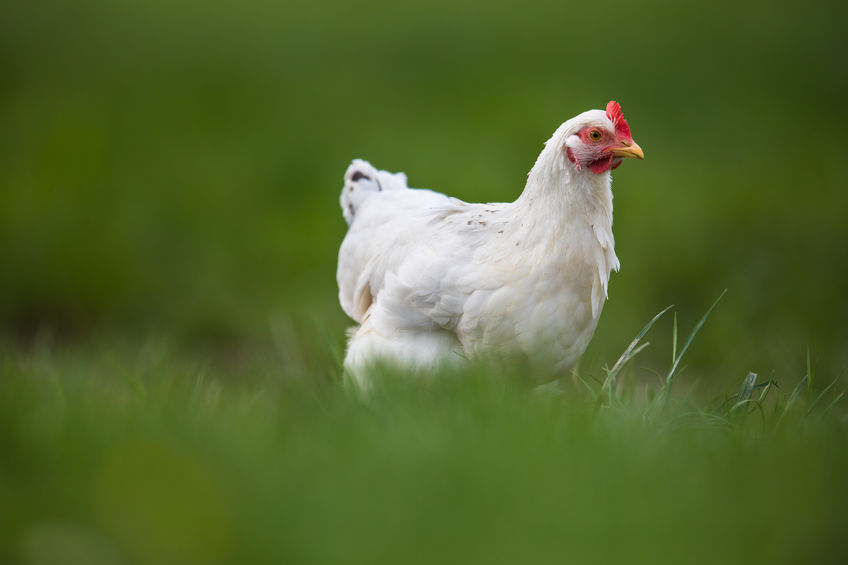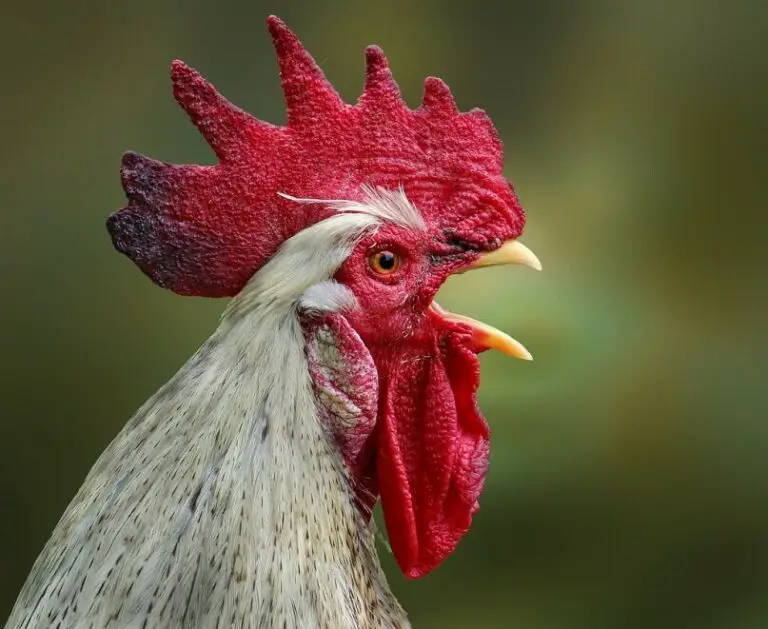Should I Free Range My Chickens – Pros, Cons And Everything In Between
Debating whether or not to let your chickens free-range is something many of us who own chickens mull over. It’s like allowing your teenager to take the car for the first time. You worry until they come back home safely, and every time they take the car out, you worry as well. By the end of this article we’ll put some fears to rest answer the question ‘Should I free range my chickens?’
We’re going to take you through the advantages and disadvantages of letting your chickens free-range, so you know what to expect. BONUS…to alleviate any worries, we’ll also give you some ideas on ways to free-range your chickens in a safe environment!
What Is Free-Ranging?
Among chicken owners such as ourselves, “free-range” refers to when our chickens are allowed to roam and explore outside the boundaries of a stationary coop/run.
Examples of Free-Ranges:
- Open areas free from boundaries.
- Fenced in backyards.
- Portable runs that are moved to provide variety.
- Tunnel systems that keep chickens in the confines of a protective area to explore.
You may notice when buying eggs in the store that some egg brands have “Free-Range” noted on the container. The commercial chicken industry often capitalizes on using that term to make consumers feel they are buying eggs from a source that raises chickens in a humane manner.
Don’t let that fool you because many commercial chicken farms consider “free-range” as nothing more than allowing chickens to run free within overcrowded buildings.
Free-ranging in its purest form is allowing your chickens to enjoy the outdoors to roam and forage.
Pros And Cons Of Free-Ranging
If you are on the fence about allowing your chickens to free-range, we have some pros and cons that help to make wise choices.
PROS |
CONS |
| Eggs
|
Eggs
|
| Predators and Pests
|
Predators and Pests
|
| Diet
|
Diet
|
| Coop Culture
|
Coop Culture
|
| Other
|
Other
|
Creative Ways To Free-Range Your Chickens
If you have never allowed your chickens to free-range, we’ll give you some tips and pointers on free-ranging without losing flock members and your sanity.
Keep Your Free-Ranging Chickens Safe
Safety of the flock is a legitimate fear among chicken farmers. Hawks, raccoons, coyotes, and others are all potential threats. But there are several ways to minimize predation, allowing your flock to forage outside in safety.
Trained Livestock Guardian Dog
Having a devoted outdoor full-time guardian dog for your chickens is something to consider. Some breeders raise and train specific dog breeds to protect livestock (including chickens.)
The only drawback to using a guardian dog is there’s always a chance of the dog harming/killing a chicken, and if you’re like us, our dogs are members of the family, and leaving them outdoors full time in all types of weather isn’t something we like doing.
Breeds Used As Guardians
- Great Pyrenees
- Anatolian Shepherd
- Maremma SheepDog
Rooster
Roosters are the “leader of the pack” and will defend flocks of hens. If you do get a rooster, we don’t recommend getting more than one because they will compete and fight.
The great thing about having a rooster is they are noisy when danger approaches, alerting us to potential predators. For hens out free-ranging, the rooster (for the most part) watches over the gals.
But remember, roosters may not notice wandering hens. Those hens can easily be attacked.
Supervised Outings
Spending some time outdoors while allowing your chickens to do a bit of roaming (free-ranging) daily is something that benefits them and us! We get fresh air, sunlight, and a bit of time to relax and chill while our chickens get to frolic outside their coop/run.
There are two options for a supervised outing.
- Walk along (at a distance) with them (this could be an all-day affair.)
- Release them out into a fenced area such as a large yard/small field and watch over them at a distance.
Use A Portable Run
There are some pretty nifty portable runs on the market today. They are lightweight enough that you can move them while your chickens are inside.
These runs are basically mesh-covered (top and sides) with an open bottom so the chickens can forage along the ground. Moving them a few times each day gives them a variety of fresh ground to enjoy.
You can build your own portable run (chicken tractor) or purchase one.
Create A Tunnel System
Your chickens will LOVE this creative way to safely free range with a predator-proof barrier. People have gotten very creative with their “chunnels!” More on chicken tunnels can be found here.
Frequently Asked Questions
“Is it cruel not to allow my chickens to free-range?”
Any animal, including chickens, are meant to enjoy the outdoors. Withholding access to fresh air, ground, and ample outdoor space is inhumane. Confining them to a coop is definitely a bad idea.
Giving them a run is good, but just how big is their run? Imagine yourself only being limited to go 10 feet outside your front door. Not fun or healthy.
“Can I use an invisible electric fence to keep them from wandering and to keep predators out?”
There are electrical fences designed for poultry. Many of them are safe and chickens learn quickly not to test the perimeter. However, they can easily fly over these types of fences or get hung up in them trying to fly up and over them.
No one wants that! Keeping their wings clipped can help eliminate that problem, but it’s something to be aware of. We write more about electric poultry fences in this article.
“How old do my chickens have to be to start free-ranging?”
Chicks should be at the very minimum 3 weeks old before allowing them to free-range provided they are mothered by a hen. Eggs hatched in an incubator without a hen may result in chicks having to find their own way without the protection of a hen.
“Do I need to feed my chickens if they free-range all day?”
Yes, we recommend feeding them a good quality feed each day to maintain the necessary nutrients they need. Brooding hens may not leave the nest to free-range, so keep them in mind when it comes to feeding.
“Isn’t allowing my backyard chickens to roam the yard the same as free-ranging?”
Yes, backyard roaming chickens are considered free-range, although traditional free-ranging is in pastures, fields, in a rural setting.
Closing Thoughts
We hope you’ve learned not only the benefits of free ranging your chickens, but a few of the potential pitfalls as well. We also hope it doesn’t stop you from finding ways to get your flock outside!
Free ranging flocks are much happier and healthier overall. Thanks for stopping by and Happy “chickening!”










This is a very educative article about chickens. My Aunt has a very big poultry farm and because I have been around her farm a few times I quite relate and agree with this information. She is always angry with her workers whenever she sees any Chicken outside. She believes they are not used to being free and may fall into danger.
I am going to share this with her and I hope she sees it from this perspective. She has many chickens that count in hundreds and bringing them out all at once may be difficult. The only way is to start with the mature ones batch by batch.
I learned something new from this article. Thanks for sharing
Hi Bethel. Thanks for your comment! Yes, some folks are concerned about having their chickens all over the yard where it’s harder to manage them, watch out for predators, etc. However, the advantages in egg and meat quality is huge. Not only that, the chickens love it too! Thanks. Tom